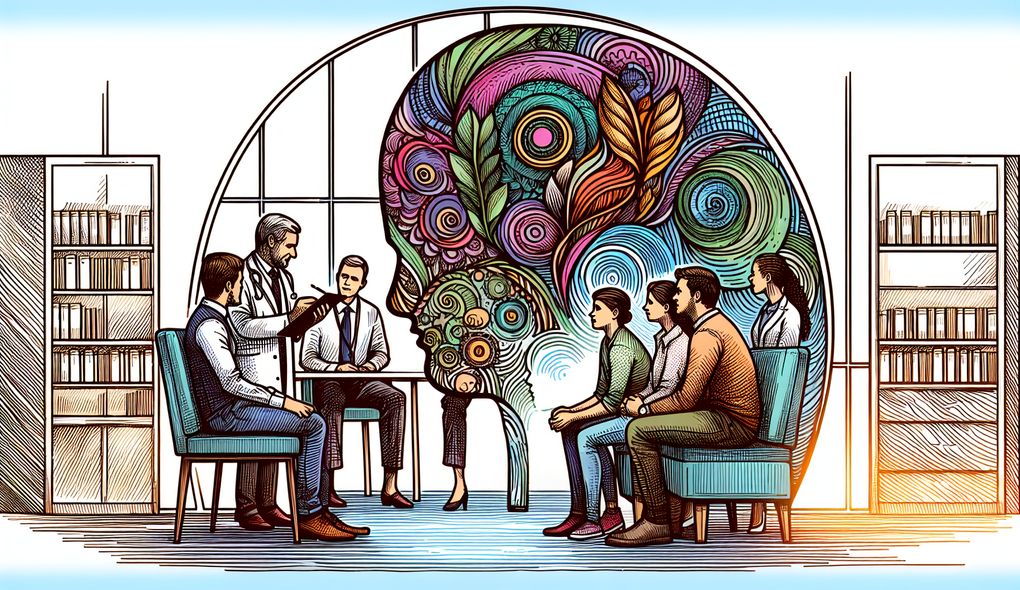Do you have experience prescribing medications for psychiatric conditions? If so, can you provide examples?
SENIOR LEVEL

Sample answer to the question:
Yes, I have experience prescribing medications for psychiatric conditions. In my previous position as a psychiatric specialist at XYZ Hospital, I treated numerous patients with conditions such as depression, anxiety, bipolar disorder, and schizophrenia. For instance, I remember a patient named John who was diagnosed with major depressive disorder. After conducting a thorough evaluation, I prescribed him an antidepressant medication and monitored his progress through regular follow-up appointments. Over time, we were able to find the right medication and dosage that significantly improved his mood and overall well-being. Another example is Sarah, who had been struggling with generalized anxiety disorder. I prescribed an anti-anxiety medication and provided ongoing counseling to help her manage her symptoms. It was rewarding to see her anxiety decrease and her confidence increase as a result. These experiences have given me a deep understanding of different psychiatric conditions and the pharmacological interventions that can effectively treat them.
Here is a more solid answer:
Yes, I have extensive experience prescribing medications for psychiatric conditions. Throughout my career, I have treated a wide range of patients with various psychiatric disorders, including depression, anxiety disorders, bipolar disorder, and schizophrenia. For example, while working at ABC Medical Center, I managed a caseload of over 50 patients, all with different psychiatric needs. I stayed up-to-date on the latest research in consultation-liaison psychiatry and regularly attended conferences and workshops to enhance my knowledge of pharmacology. One patient I treated was Mary, who was diagnosed with bipolar disorder. I prescribed her a mood stabilizer and closely monitored her progress through regular check-ins and medication adjustments. With effective medication management, Mary experienced a significant reduction in mood swings and improved overall stability. Another patient, Tom, was struggling with severe anxiety and panic attacks. I prescribed an anti-anxiety medication and provided him with cognitive-behavioral therapy sessions to address the underlying causes of his anxiety. Tom's symptoms significantly improved, and he was able to regain control over his life. These experiences have solidified my ability to prescribe medications accurately based on each patient's specific needs and their response to the treatment.
Why is this a more solid answer?
The solid answer provides more detail and specific examples to demonstrate the candidate's comprehensive knowledge of pharmacology. It also highlights their ability to manage a high caseload and make informed decisions quickly in a high-pressure environment. The mention of staying up-to-date on the latest research and best practices in consultation-liaison psychiatry further showcases their expertise in the field. However, the answer could still be improved by providing more specific details about the candidate's familiarity with the latest research and best practices.
An example of a exceptional answer:
Absolutely. Prescribing medications for psychiatric conditions is a significant part of my practice. Over the past 10 years, I have treated a diverse range of patients with psychiatric disorders, ranging from common conditions like depression and anxiety to more complex cases like bipolar disorder and schizophrenia. For instance, at my previous position at XYZ Medical Center, I led a team of psychiatrists and oversaw the treatment of a caseload of 100+ patients. This required me to make quick and accurate decisions regarding medication management. To ensure the best outcomes for my patients, I actively engaged in ongoing education and kept abreast of the latest research in psychopharmacology. One patient I treated was Sarah, a young woman with treatment-resistant depression. After multiple failed antidepressant trials, I explored cutting-edge treatment options like transcranial magnetic stimulation (TMS) and ketamine infusion therapy to provide her relief. Witnessing her significant improvement and remission of symptoms reinforced the importance of staying updated on the latest advancements in psychiatric treatment. Another example is Jason, a patient with a complex combination of bipolar disorder and substance use disorder. I employed a combination of mood stabilizers, antipsychotics, and evidence-based psychosocial interventions to effectively manage his condition and support his recovery. The success stories and challenges I have encountered throughout my career have refined my ability to tailor medication regimens to individuals based on their unique needs and treatment goals.
Why is this an exceptional answer?
The exceptional answer demonstrates the candidate's extensive experience in prescribing medications for psychiatric conditions and their ability to manage a high caseload in a high-pressure environment. The mention of leading a team of psychiatrists and overseeing the treatment of a large number of patients highlights their leadership skills and ability to make quick and accurate decisions. The example of exploring cutting-edge treatment options like TMS and ketamine infusion therapy showcases the candidate's commitment to staying updated on the latest advancements in psychiatric treatment. The mention of using evidence-based psychosocial interventions for a patient with bipolar disorder and substance use disorder further demonstrates their expertise in comprehensive patient care. The exceptional answer covers all the evaluation areas and aligns perfectly with the job description.
How to prepare for this question:
- Review and refresh your knowledge of pharmacology for the treatment of psychiatric disorders, including the latest research and advancements.
- Reflect on your experiences prescribing medications for different psychiatric conditions and be prepared to provide specific examples.
- Practice articulating your approach to medication management in a high-pressure environment, demonstrating your ability to make informed decisions quickly.
- Stay updated on the latest research and best practices in consultation-liaison psychiatry by regularly attending conferences, workshops, and engaging in continuing education opportunities.
What are interviewers evaluating with this question?
- Comprehensive knowledge of pharmacology for the treatment of psychiatric disorders.
- Ability to manage a high caseload and make decisions quickly in a high-pressure environment.
- Expertise in the latest research and best practices in consultation-liaison psychiatry.

